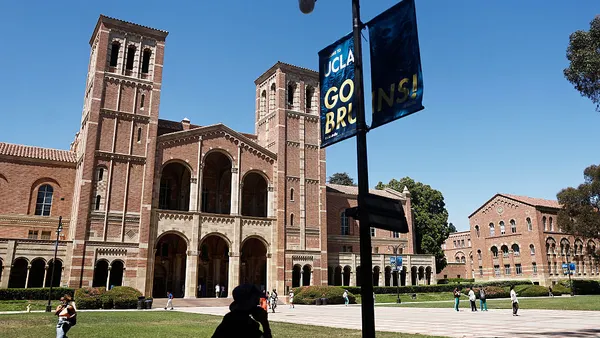At a time when Ford needs all the help it can get, its finance executives seem to be taking off faster than a Shelby Cobra. In March, two more resigned from the beleaguered company.
Anne Marie Petach, former vice president and treasurer, and James Gouin, former vice president of finance, strategy, and business development, announced their resignations within two days of each other — Petach to become head of business finance at investment-management firm BlackRock Inc. and Gouin to pursue the proverbial “other” interests. Their departures come just one month after Ford Motor Credit Co. lost its CFO, David Cosper, and five months after Alan Mulally was named CEO at the automaker, which had record losses of $12.7 billion in 2006.
Ford’s treasury department helped secure the $23.4 billion financing package the company desperately needs to restructure. But given all the bad news out of Detroit, it was only a matter of time before the finance ranks started thinning, says Kevin Tynan, a senior automotive analyst at Argus Research. “The company is struggling not only on the product side but internally as well,” he says. “People see it and are getting out as quickly as possible.”
The best Ford can do now, says Scott Simmons of recruiting firm Crist Associates, is to try to persuade employees to stay by using noncompete and clawback clauses and bonuses. “When a company is in the doldrums like Ford, it becomes an easy target for recruiters. So the best thing Ford can do is find a way to lock people in,” says Simmons, adding that Ford has used noncompete clauses and bonuses in the past. But this time Ford has its work cut out for it; the company doesn’t expect to start making a profit again until 2009.
A Roll of the Dice
Anyone want to wager on the outcome? If a pending deal for Station Casinos to be acquired by a private-equity group goes through, CFO Glenn Christenson will probably stay retired. If not, who knows?
“This has been the best CFO job in the gaming industry,” says Christenson, 57, who has been with Station Casinos for 17 years. “It’s given me the opportunity to do just about everything a CFO can do in a career.” Those opportunities have included taking the company public and opening the $925 million Red Rock, the most expensive resort off the Las Vegas strip (see On the Record, July 2006).
In February, however, the casino agreed to be acquired by Fertitta Colony Partners, a PE group that includes members of Station’s founding Fertitta family. The price was $5.4 billion for the $1.3 billion (in revenues) company, which owns 16 casinos in Nevada and an American Indian casino in California. “The deal was a win for everyone, and the right time to get someone with fresh ideas into the finance chair,” says Christenson.
As for the future, Christenson says it’s a toss-up between the civic work the 34-year Vegas resident is passionate about or jumping back into the corporate world. A careful read of his separation agreement, though, reveals an unusual third possibility: if the acquisition falls through, it would void the agreement and he could find himself in familiar digs. “In essence, it would put me right back in the role I was in,” he says. “If that happens, then we’d have to sit down and talk about it.” — L.D.












